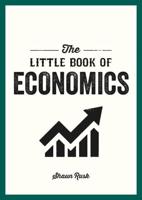Publisher's Synopsis
A group of prominent international economists consider what makes for successful convergence-what policies and economic conditions help poor countries catch up to the living standards of rich countries.
The question of convergence, or under what conditions the per capita income levels of developing countries can catch up to those found in advanced economies, is critical for understanding economic growth and development. Convergence has happened in many countries and appears to be taking place now in China and India-yet in general per capita income levels in the poorer countries do not converge towards those of richer countries as uniformly as the analytical models predict. Living Standards and the Wealth of Nations, which grew out of a 2003 conference on convergence hosted by the National Bank of Poland, offers detailed theoretical and empirical examinations of what makes for successful convergence. After general discussions of the theoretical requirements for "rapid catch up" and the possible link between democracy and growth, the book presents global case studies of both non-EU and EU countries, including a provocative comparison of growth in the transition economies of the CEE (Central and Eastern Europe) nations and the 12 non-Baltic states of the former Soviet Union. It then considers nominal as opposed to real convergence in the European Monetary Union. Taken together, the chapters present a consistent argument that reliance on market forces within an open economy in a stable macroeconomic environment, with assured property rights, is the key to rapid economic growth.
Contributors
Anders Åslund, Leszek Balcerowicz, Manuel Balmaseda, Iain Begg, John Bradley, Vittorio Corbo L., Stanley Fischer, Leonardo Hernández T., Philip E. Keefer, Olle Krantz, Abel Moreira Mateus, Thomas O'Connell, Stephen L. Parente, Edward C. Prescott, Jacek Rostowski, Isaac Sabethai, Miguel Sebastián, Diarmaid Smyth, Athanasios Vamvakidis, José Maria Viñals, Wing Thye Woo, Nikolai Zoubanov











